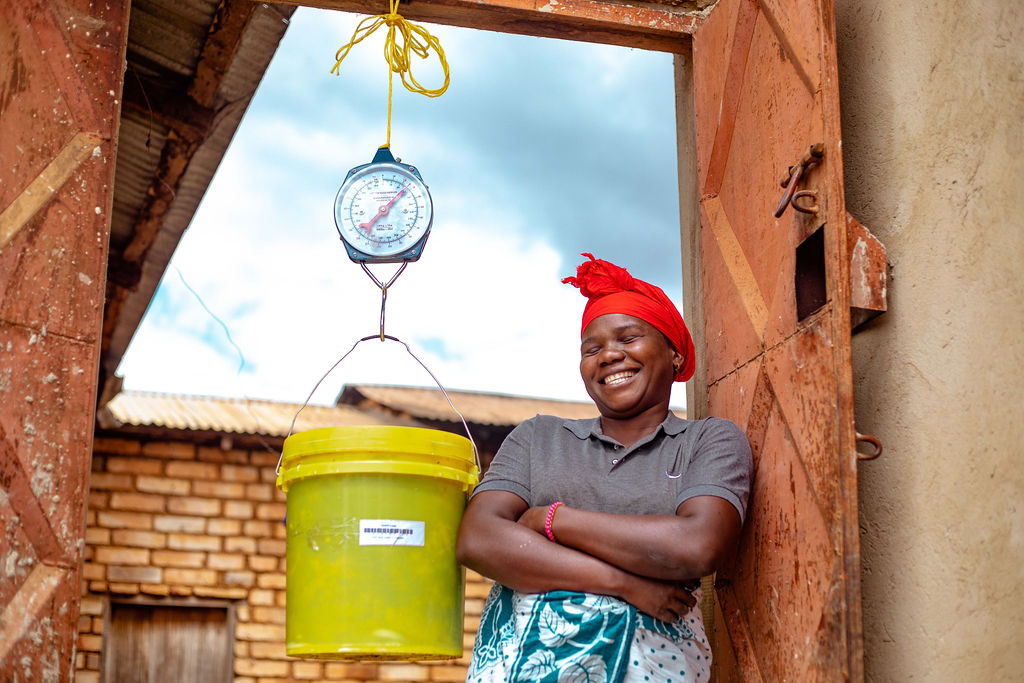How Fair Trade Honey Transformed a Local Community and Empowered Beekeepers
It began with a simple question: How can we support local farmers and bring sustainable, quality products to our community? The answer, as it turned out, was sweeter than we ever imagined—honey.
The Beginning: A Struggling Beekeeper
Years ago, I met a local beekeeper named Vintan. He was passionate about his craft, and took pride in producing pure, raw honey, but he faced challenges. Despite working tirelessly, Vintan couldn’t make a sustainable living. The middlemen he sold to paid him unfair prices, leaving him with little profit for the countless hours of labor that went into each jar of honey.

Vintan’s story wasn’t unique. Many other beekeepers in the region struggled with the same issue — they were passionate about their work but couldn’t reach a larger market or get fair compensation for their products. This struck a chord with me. I knew something had to change.
The Spark: Creating a Fair Trade Honey Business
Inspired by Vintan and others like him, Central Park Bees Limited decided to launch a honey business focused on fair trade principles. Our goal was simple: create a direct relationship between local beekeepers and consumers, cutting out the many layers of middlemen who were taking most of the profits. We wanted to ensure that the beekeepers were paid fairly for their hard work, while offering consumers high-quality, ethically sourced honey.
With this mission in mind, we started "Swahili Honey", a business that would buy honey directly from local beekeepers at fair prices and sell it in eco-friendly, beautifully packaged jars. Our business model prioritized transparency and sustainability — every jar of honey had a story, and our customers knew exactly where their honey came from and the impact of their purchase.

Building Relationships and Empowering Beekeepers
The first few months were crucial. We began by establishing strong relationships with beekeepers like Vintan, agreeing on fair pricing that honored their labor and skills. For many, this was life-changing. Beekeepers who had struggled to make ends meet suddenly had more financial stability. They could invest in better equipment, expand their hives, and improve their overall production processes.
As we grew, we also invested in training and workshops for beekeepers, helping them improve honey production techniques and adopt sustainable practices that benefited both the environment and their businesses. With fair trade at the core of our philosophy, we created a ripple effect of positive change. Beekeepers were not only surviving but thriving, and more people became interested in beekeeping as a sustainable livelihood.

A Sweet Success: Supporting Communities and the Environment
Our fair trade honey business quickly gained traction. Local consumers were eager to support ethically produced honey. As word spread, We began retailing, wholesaling, and selling online, reaching local and international customers who value sustainability and fair trade practices.
But the impact went beyond just fair compensation for beekeepers. With the increase in honey production and sustainable practices, we were also helping to protect local ecosystems. Bees play a critical role in pollinating plants and maintaining biodiversity, and by supporting beekeepers, we are contributing to a healthier environment.

The Ripple Effect: From Beekeepers to Communities
The most rewarding part of this journey has been watching how the fair trade model has impacted entire communities. Beekeepers, now earning fair wages, were able to invest back into their farms, hire more workers, and support their families more effectively. The improved income allowed them to send their children to school, upgrade their homes, and enhance their overall quality of life.

One beekeeper, Faraja, shared how the extra income from our partnership enabled her to expand her bee farm and start a side business producing and selling avocados. She employed two women from her village, offering them opportunities they had never imagined. Stories like Faraja’s are a testament to the power of fair trade in empowering individuals and uplifting entire communities.

A Growing Movement: Fair Trade and Ethical Consumption
Today, Swahili Honey has grown beyond my wildest expectations. We work with over 2,500 local beekeepers, ensuring each one receives fair compensation and the tools they need to succeed. Our customers continue to support us because they know that every jar of honey they buy makes a difference. It’s not just about a product — it’s about supporting sustainable practices, empowering local farmers, and choosing ethical consumption.

The Lesson: Fair Trade is More Than Business — It’s a Movement
Looking back, I realize that fair trade is more than just a business model. It’s about respecting the hard work of producers, creating transparency in the supply chain, and making ethical choices that benefit everyone involved. By choosing fair trade, we’re not just buying honey; we’re supporting livelihoods, fostering environmental sustainability, and building stronger communities.

What started with a simple idea to help one beekeeper has blossomed into a movement that supports dozens of families, empowers entrepreneurs, and promotes ethical consumerism. It’s proof that when we prioritize fairness and sustainability, we can create a better, sweeter world for everyone.
Call to Action:
If this story inspired you, consider supporting fair trade products in your own community. Look for local farmers, artisans, and beekeepers who prioritize sustainable and ethical practices. By making small, intentional choices, we can create a ripple effect of positive change, one purchase at a time.
This version highlights the impact of fair trade practices within the honey business, focusing on empowering local beekeepers, supporting communities, and promoting ethical consumption.

